Writers, Readers, and Glorious Fools
Novels vs. Short Stories, and Why We Write
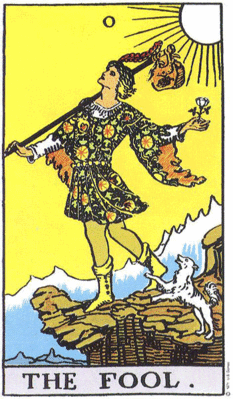
“What fools these mortals be…”
–Puck, A Midsummer Night’s Dream
“But the fool on the hill
Sees the sun going down
And the eyes in his head
See the world spinning around…”
–The Beatles, “Fool On the Hill”
A colleague of mine recently asked the question: “Why do we write short stories?” Good question. It set me to thinking: “Why do people READ short stories?”
Which set off a whole line of thought involving the reasons why writers write, and conversely, why readers choose to read what they read.
Readers: Which do you like best, novels or short stories? I may be a writer but I’ve been a reader a lot longer and my answer has to be “It depends on the novel or story.”
I’ve read novels that touched my soul and changed my life…and I’ve read short stories that did the same thing. In most of those instances, the novels seem to stay with me longer…maybe because of their greater size and time commitment. Yet I could never discount the power of marvelous short stories like Harlan Ellison’s “I Have No Mouth and I Must Scream,” Robert Silverberg’s “The Reality Trip,” or Clark Ashton Smith’s “Xeethra.” (To name only three of hundreds.)
From a reader’s perspective, they’re ALL stories. Length isn’t a requirement for greatness. However, when you spend time with a novel it’s like forming a relationship. You live with this story for days, weeks, or even months (depending on how fast you read). A short story is usually read in one sitting, sometimes two. They’re more like blind dates…you never know what you’re going to get so you dive in and see what happens.
From a writer’s perspective, there are some parallels but the matter becomes instantly more complex. First off, writers have different reasons for writing what they do. So for the case of this article I’m going to talk about writers who have not been hired to write in any particular medium, genre, or format. That is, writers who are following their Muses…writing what they are compelled to write.
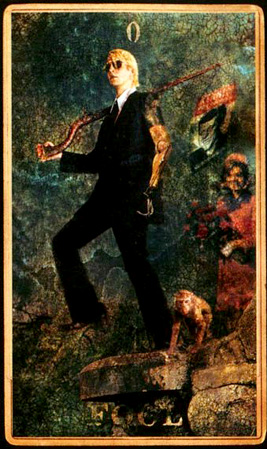
In the traditional Tarot card deck the Fool card holds a special place. In most images of the Fool, a vagabond or wandering minstrel is seen about to walk off a cliff. This represents taking a “blind leap of faith” or “launching one’s self into the void.” Some experts say the Fool also represents taking action where circumstances are unknown, and/or taking a risk.
This is exactly what a writer does when he or she begins a work of fiction. If someone says “You have to be crazy to write fiction,” they’re not exactly wrong.
Unless you’re already famous (most of us aren’t) or own a publishing company (most of us don’t), you must work without any certainty that your creation will ever be seen by anyone but yourself. This is certainly where ever single writer STARTS. Even best-selling authors had to begin at this stage. Writing is a “leap of faith.” Faith in yourself, your creative drive, your interior vision. In the end, you cannot find success writing for anyone else but yourself. However, there is nothing like the pleasure of having others discover and enjoy your work.
So even though writers must write first and foremost for themselves, most of them do want an audience. Important decisions have to be made that will affect the likelihood of getting that audience. These are factors outside the level of the writer’s talent (which comes before all else). One of the most important decisions is “Do I write a short story?” or “Should I write a novel?”
The traditional model of success used to be that a writer cranked out enough short stories to prove his worth, then “graduated” to his/her first novel, and so on. Nowadays, however, there are plenty of novels on the bookshelves of your local store written by writers who have never sold a single short story. Back in the glorious days of the pulp magazines, authors could actually make a living selling short stories. No longer. Today fiction magazines are not only a shrinking market, but payments for stories haven’t really changed that much since the 1930s! (i.e. You can’t make a living writing short stories today, even if you’re a well-known writer.)
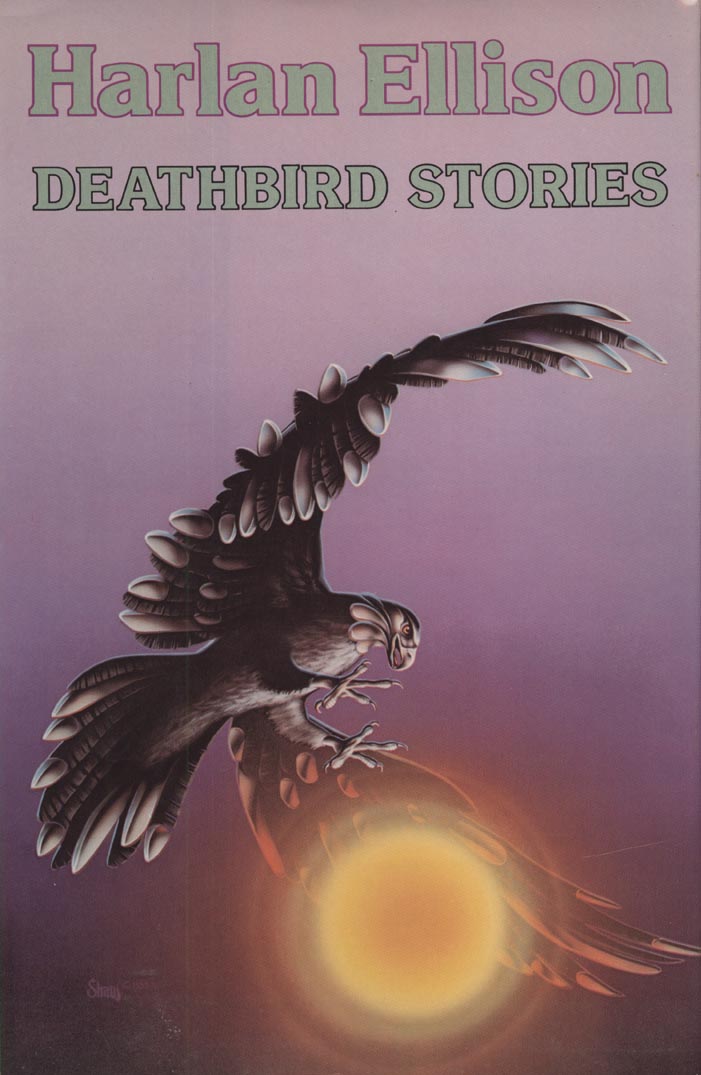 So back to the question: Why do writers write short stories? Why not rid ourselves of the format altogether and concentrate solely on novels? Sound ridiculous? Well, it is…and here’s why. Short stories are a valid art form, just as novels are. Art isn’t defined by monetary value (despite what art dealers and booksellers might say). You wouldn’t toss your kid’s painting in the trash because it’s not a Rembrandt, would you? The value of any art form lies not in the fiscal rewards that it brings, but in the compact between its creator and its audience. It’s been said that art is a “bridge between souls.” It is the act of writing…and the act of reading…that gives fiction its value (regardless of format or length).
So back to the question: Why do writers write short stories? Why not rid ourselves of the format altogether and concentrate solely on novels? Sound ridiculous? Well, it is…and here’s why. Short stories are a valid art form, just as novels are. Art isn’t defined by monetary value (despite what art dealers and booksellers might say). You wouldn’t toss your kid’s painting in the trash because it’s not a Rembrandt, would you? The value of any art form lies not in the fiscal rewards that it brings, but in the compact between its creator and its audience. It’s been said that art is a “bridge between souls.” It is the act of writing…and the act of reading…that gives fiction its value (regardless of format or length).
So why do writers write novels? Ideally, it’s because they have an idea that demands the novel format. But in reality it may be because novels are expected of “real” writers these days. If you want to be a full-time writer, you are expected to write novels. However, writers cannot simply ignore the short story format for several reasons: 1) some ideas demand the short story format, 2) magazines and anthologies are great places for writers to feature their talents, 3) the rewards of writing a short story are very different from those of writing a novel, and 4) short stories can do things that novels can’t (and vice versa).
Short stories can be as wild and imaginative and insane as the writer wants them to be. Novels are generally more traditionally structured and paced…the deeper into the novel you get the more bound you are to the characters and plot and setting of that novel. With a short story you have the freedom to be as wild and inventive and experimental as you want to be. Ironically, in a shorter piece the limits are removed. Short stories can be breakneck experiments, or quick bursts of storytelling bravado.
The TRUE reward for writing a story (of any length) is the satisfaction it gives you as a writer–and nothing else. If someone else likes it enough to pay you some scratch for it, so much the better, but if you hold your creative breath for that, you’re doomed. A few years back, I came to grips with the fact that MOST of the stuff I write will go unpublished. Most writers will tell you the same thing. Every writer has a few stories or novels (or whole rooms full of them) that never went anywhere. That’s okay. Because every piece you write, no matter how short or long, is a stepping stone on the road to being A Better Writer. Everything you write is important, because it leads you to the next thing you write–and hopefully each piece you write will be better than the last.
I’ve sold nine or ten short stories, written some comics and a graphic novel, and I’ve got an agent currently shopping my Big Fantasy Novel to publishers. (I could write a whole ’nother article on finding an agent…that took me quite a while.) I could just sit back and play the waiting game…wait for my novel to find a publisher, wait for my agent to call. But how would that improve my writing? How would that get me to the place where I want to be? It wouldn’t.
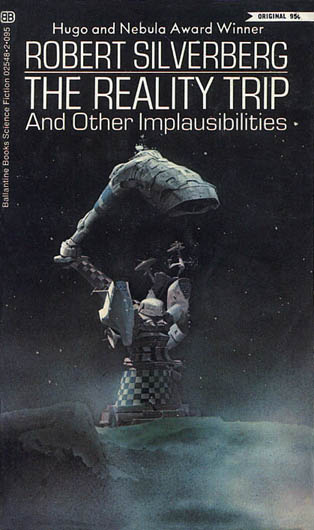 Some while ago I went through a brief period of disillusionment where I contemplated abandoning the short story form altogether. Eventually I realized I’d be crazy to do that. Writers need to write. I teach English Language Arts for a living, and I love it. However, I have to carefully carve out writing time for myself during the school year. Writing a novel requires months (sometimes years) of concentration and dedication. It’s the marathon of fiction writing. Not going to happen until my next Summer Break. So while my agent is doing his thing with my novel, I decided to dive back into short stories for a couple of reasons, both of which answer the question “Why do we write short stories?”
Some while ago I went through a brief period of disillusionment where I contemplated abandoning the short story form altogether. Eventually I realized I’d be crazy to do that. Writers need to write. I teach English Language Arts for a living, and I love it. However, I have to carefully carve out writing time for myself during the school year. Writing a novel requires months (sometimes years) of concentration and dedication. It’s the marathon of fiction writing. Not going to happen until my next Summer Break. So while my agent is doing his thing with my novel, I decided to dive back into short stories for a couple of reasons, both of which answer the question “Why do we write short stories?”
1) Because the level of satisfaction you get from crafting a whole, complete story is tremendous–and it doesn’t take you a year or more (like a novel does). A great short story is a whole UNIVERSE unto itself, and it’s more like a short-term reward for the writer’s soul. (And who knows–it may find a publisher as well…but that’s beside the point.)
2) Because writers have to KEEP WRITING. Use it or lose it. Instead of sitting around waiting to hear something about my novel, I start writing new stories, and I’m honing my craft. I’m even targeting some new markets for my fiction. And never forget, writers, that anyone who enjoys a short story will be more likely to check out your eventual novel…
Sure, I may crank out a few stories that end up never getting published…but that’s all right. Publishing is secondary to a writer’s first goal: Becoming a better writer by exploring your visions to the limit of your ability. You will expand those limits by this very process.
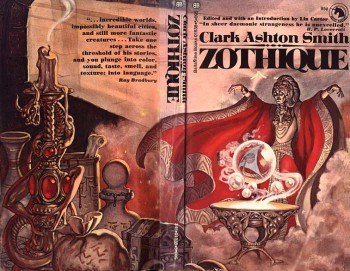 There is an awesome freedom to be found in a short story. Although there are word limits, there are really no IDEA limits. When you get into writing a novel, you have to keep the “weave” going, and everything you do sets up rules you have to follow as the tale proceeds. But in a short story, you can do pretty much anything. In a relatively short amount of time.
There is an awesome freedom to be found in a short story. Although there are word limits, there are really no IDEA limits. When you get into writing a novel, you have to keep the “weave” going, and everything you do sets up rules you have to follow as the tale proceeds. But in a short story, you can do pretty much anything. In a relatively short amount of time.
So maybe this is a good analogy because it applies to BOTH readers and writers:
– Novels are love affairs…brilliant, passionate long-term relationships featuring intimate experiences with a single partner who becomes your whole world.
– Short Stories are one-night stands…bouts of passionate lovemaking that can make the blood race and the heart flutter…but you don’t live with them over a period of months and years…you do the thing, lay back, and sigh with contentment.
Both are satisfying experiences, but in very different ways.
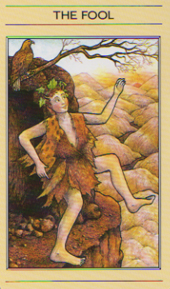 No matter the length, format, or content of the work, a writer takes the “Fool’s leap” whenever he or she puts down the first words of a story. First and foremost, you have to believe in yourself.
No matter the length, format, or content of the work, a writer takes the “Fool’s leap” whenever he or she puts down the first words of a story. First and foremost, you have to believe in yourself.
Thank God for the Glorious Fools…where would this world be without them?
–John R. Fultz, San Jose, 2010
This has given me a lot to thing about. Most short stories don’t grip me enough for me to enjoy them. I agree with what oy say about novels. I recently read Musashi by Eiji Yoshikawa. That is a fairly long novel and you go on a journey with musashi, you feel the changes he feels from the beginning of the novel to the end. It wasn’t really until i found blackgate, which then lead me to howard that i really started looking at short fiction. Howard showed me the power of the short story. How you don’t need any background or multiple plots to have a story that excites you. I the idea of writing short stories becuase you can just write how you feel is that momment, you can’t do that with a novel. I only have a few meager attempts at my own short stories (i would never dream of writing a novel). I really only write whne the muse hits me, which isn’t very often. Every now and then i get an idea that just causes me to write.
My first Black Gate comment!
I read lots of novels, and as John R. Fultz said, you do follow the characters around for days, and that’s why I love novels. I love short stories just as much because they take less time and are themselves filled with great happenings. Like Black Gate’s own The Beautiful Corridor and Spider Friend. My own writing schedule is like a roller coaster: some days I write a bunch of stories over a week, then something happens and I go days without picking up a pen, no matter how much I know about what I want to write.